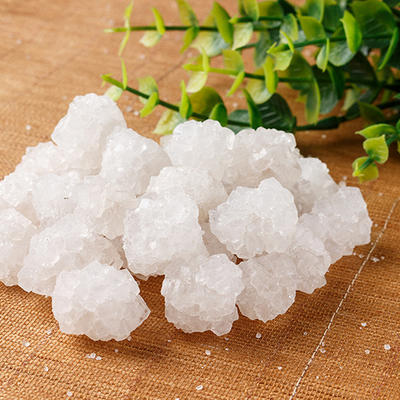In the world of water softening, the debate between using solar salt and pellets has been ongoing for years. Each has its proponents who swear by its effectiveness and benefits. But which one is truly better? Let's delve into the details to find out.

Understanding Solar Salt:
Solar salt, also known as evaporated salt, is obtained by evaporating seawater or brine in large open ponds under the sun. This process results in large crystals that are then harvested, crushed, and packaged for use in water softeners. Solar salt is known for its relatively low cost and high purity, making it a popular choice among many homeowners.
The Benefits of Solar Salt:
1. Cost-Effective: Solar salt tends to be more affordable compared to other water softening options, making it a budget-friendly choice for many households.
2. Natural: Since solar salt is derived from the evaporation of seawater or brine, it is considered a natural and environmentally friendly option for water softening.
3. Readily Available: Solar salt is widely available in most hardware stores, supermarkets, and home improvement centers, making it convenient for homeowners to purchase.
4. Effective: Solar salt effectively removes minerals like calcium and magnesium from water, preventing scale buildup in pipes and appliances.
Understanding Pellets:
Water softening pellets are typically made from compacted salt crystals or salt granules. These pellets are formulated to dissolve slowly, releasing sodium ions into the water to remove hardness minerals. Pellets come in different forms, including rock salt pellets, evaporated salt pellets, and solar salt pellets.
The Benefits of Pellets:
1. Efficiency: Pellets are designed to dissolve gradually, providing a continuous supply of softened water to the household.
2. Compact: Pellets are compact and easy to store, making them a convenient option for homeowners with limited storage space.
3. High Purity: Pellets are often highly purified during the manufacturing process, ensuring that they are free from impurities that could clog the water softener.
4. Versatility: Pellets come in different forms, allowing homeowners to choose the type that best suits their water softening needs.
So, Which is Better?
The answer to this question ultimately depends on various factors, including personal preference, budget, and water softening needs. Solar salt may be a better option for those looking for a cost-effective and environmentally friendly solution, while pellets may be preferred by homeowners seeking convenience and efficiency.
It's essential to consider factors such as water hardness, water usage, and the type of water softener when deciding between solar salt and pellets. Consulting with a water treatment professional can also provide valuable insights and recommendations based on individual circumstances.
In conclusion, both solar salt and pellets have their advantages and can effectively soften water. Ultimately, the choice between the two comes down to personal preference and specific needs. Whether you opt for solar salt or pellets, ensuring regular maintenance of your water softening system is key to enjoying the benefits of softened water for years to come.